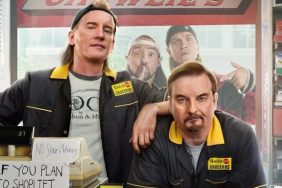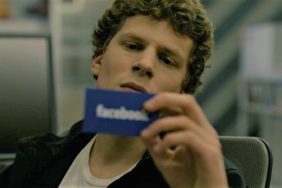
One of the great American filmmakers – period, so don’t argue with us on this – has a new movie out this weekend. Michael Mann’s Blackhat takes us into the world of cybercrime, in much the same way his previous films took us deeply into the detailed worlds of thievery, serial killers, Big Tobacco, drug running, hitmen, 1930s gangsters and even the French and Indian War. His densely researched storylines, pulled back storytelling style and tendency to eke world class performances from world class actors make the release of any new Michael Mann movie a cause for celebration, even if Blackhat isn’t one of his very best.
Related: Michael Mann on Digital Filmmaking & Shootouts (Exclusive Interview)
So this seemed like the perfect opportunity to reflect on the impressive career of Michael Mann by pitting CraveOnline’s film critics – William Bibbiani, Witney Seibold and Brian Formo – against each other in a battle of good taste. Which film did each critic decide was The Best Michael Mann Movie Ever? You’ll find out below, and you’ll even get to vote for your own favorites at the bottom of the page, and have the final say.
Come back every week for another installment of The Best Movie Ever, right here at CraveOnline!
Check Out: The Best Movie Ever: Threequels
William Bibbiani’s Pick: The Last of the Mohicans (1992)

Everyone loves Michael Mann’s crime movies – and with good cause, since they’re some of the best ever made – but what does Michael Mann love? Apparently he loves The Last of the Mohicans, the one film in his entire catalogue that feels like it was born not from attention to detail but from the aspiration to capture the pure majesty of storytelling itself.
That sounds like high praise. It is. The Last of the Mohicans is one of my three favorite motion pictures, and not just because I think it’s entertaining. Michael Mann’s (incredibly loose) adaptation of James Fenimore Cooper’s classic adventure novel has an epic sweep that few movies of the last few decades have even attempted to capture. From the whistle of the flying tomahawks to the nigh Shakespearean sacrifices made by great (and not so great) men to protect innocents from the violence of war and revenge, to the grand, completely believable romance between Daniel Day-Lewis and Madeleine Stowe. Michael Mann writes and films it all with a classical eye that seems especially remarkable, given just how modern the rest of his filmography comes across.
And at the center of it all is one of cinema’s greatest villains: Magua, played with ruthless intensity by Wes Studi, giving his greatest performance. “When the Grey Hair is dead, Magua will eat his heart. Before he dies, Magua will put his children under the knife, so the Grey Hair will know his seed is wiped out forever.” I got chills just transcribing that. The Last of the Mohicans is the best Michael Mann movie ever, and by extension, one of the best movies period.
Brian Formo’s Pick: Heat (1995)

What makes the best movie for a director? Is it the one that’s the most technically sound? The one you’d want to watch the most? Michael Mann’s made a number of good to great movies – Thief, The Insider, Miami Vice, Collateral, Ali, Manhunter, The Last of the Mohicans – but Heat is infinitely re-watchable. If you’re flipping through the channels and see a scene, you put down the remote and go with the flow.
Witney Seibold’s Pick: The Insider (1999)

Michael Mann is most certainly an auteur, and you can spot his aesthetic from a mile away. He has always been fond of immediate camerawork techniques, using handheld shots and quick edits. He also employs a lot of dark, natural nighttime lighting. When digital camera became vogue, he was one of the first major filmmakers to make the technological switch, quickly falling in love with the down-and-dirty ease of the new lightweight cameras. Michael Mann films tend to look like security camera footage. And while that can make for bracing and intellectual thrillers, most of Mann’s films feel cold and distant. Mann looks at his characters like pieces of evidence in a long-ago crime rather than immediate people with heart and feelings.
Michael Mann’s best film, then, is The Insider, the Best Picture nominee from 1999. I feel like it’s the only time the director – usually so smoky, steely, procedural, and emotionally distant – managed to create something that was downright humane. Al Pacino plays a star reporter who has come into contact with a Big Tobacco scientist (played brilliantly by Russell Crowe) who wants to blow the whistle on chemical malfeasance in the cigarette industry. This seems like a simple tale, but the horrible politics, threats, and backhanded backstabbings are all more insidious than you could ever imagine. Mann manages to take the tropes of an investigative drama, and apply it to the post-Cold War milieu of warring lobbyists, not-so-nice corporations, and the overwhelming modern wash of media visibility. This is not a film about crime or machismo, as so many of Mann’s films are. This is a film about how hard it is to tell the truth, even when you want to.








